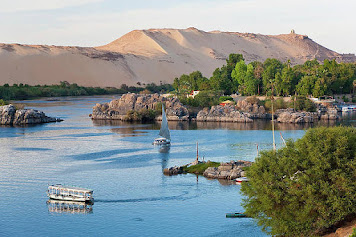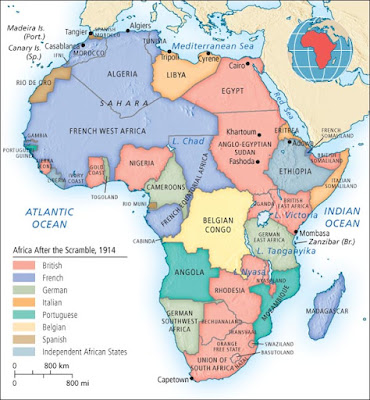Introduction: the What, Why and How of Water and Politics
Hey everyone! Welcome to my blog on the water and politics of Africa.
I used to attend a boarding school during my high school education years, and my Nigerian roommate would always talk to me about African politics and the transboundary conflicts within the continent. Listening to these issues from a first-person's perspective ignited my interest in African politics, so I decided to utilise this platform and investigate how the seemingly neutral element of water comes into play.
Another personal link with this theme stemmed from a course I took last year during my year abroad called 'Development and Health in Sub-Saharan Africa'. My professor warns us of the 'danger of a single story', and highlights the risks of understanding from only one perspective and missing out on the nuances and complexity that these stories hold. The aftereffects of colonialism, along with the structural inequality within the Western-centric academia, skew representations and produce a one-sided narrative of Africa. This notion echoes Binyavanga Wainaina’s satirical piece 'How to Write about Africa', where he sarcastically commented on how the dominant Western journalists often portray Africa as a homogenous 'country' and reinforces stereotypes repeatedly, until 'that is what they become'.
Upon reflecting on my positionality as a non-African who has never experienced water insecurity, this blog will carefully navigate through the myriads of neo-colonial and neo-liberal undertones among papers, articles, and media coverage on the hydropolitics of Africa and embrace the multifaceted relationships between water and political power.
More than 80% of Africa’s river and lake basins are shared between 2 or more nations, and the 61 transboundary rivers in Africa cover up to 62% of the continent's surface area (Algamal, 2010). As economists would explain, the conflicts over shared water sources are a 'tragedy of the commons.' The geopolitics of water is complex, and the resource itself is often regarded as political and even of strategic importance. Hence, a resolution of the dispute and the development of a management plan that allows for equitable and efficient exploitation of water resources are paramount to the whole African continent (El-Fadel et al., 2003).
Background of the Nile basin
It is simply impossible to cover all transboundary bodies of water in Africa over a series of blog posts, so I position the centre of interest of my blog posts on the Nile River Basin, with a focus on international conflicts and a case study on the Grand Ethiopian Renaissance Dam. The Nile Basin is approximately 6650 km long and flows through 11 African countries (Allan et al., 2019).
The geopolitical tension on the Nile river is a pressing one, especially with its volatility and proximity to the Middle East, and the increasingly evident demand-side stress induced by the rapid urbanisation of sub-Saharan Africa (Kameri-Mbote, 2007). How did we come to this, and what are the futures of the governance of this commons? I am very excited to explore this further with you all.



This is a good introductory post, showing a sound grasp of water and politics issues with insights on broader implications, showing adequate engagement with relevant literature but the referencing needs to follow the suggested format.
ReplyDeleteI'm looking forward to reading your further blog posts. It is refreshing to read your thoughts upon the 'single story' narrative and the stereotypical representations of multifaceted problems. Reflecting upon your positionality is a good step to illustrating to us your relationship with these contexts.
ReplyDelete